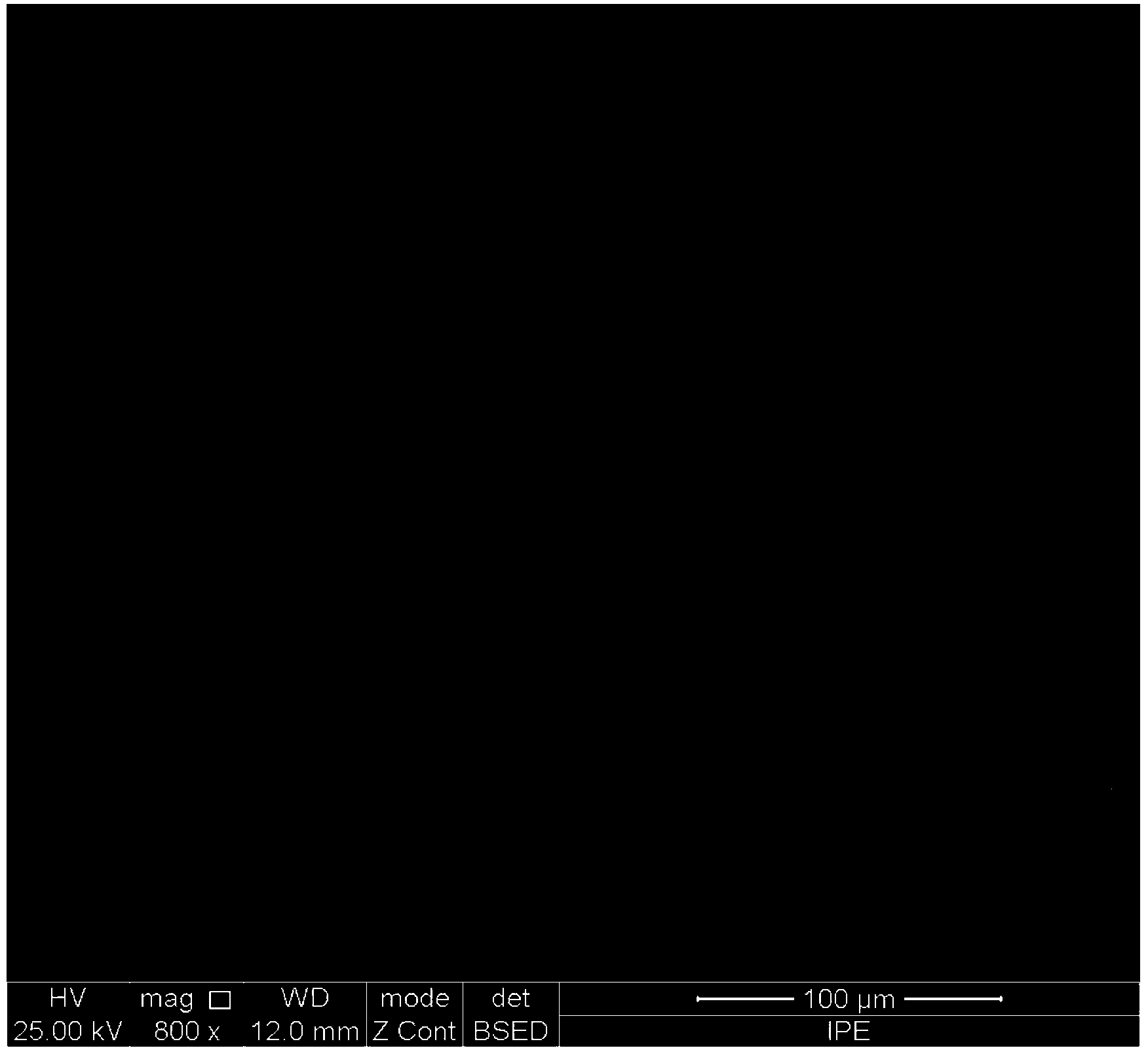High-temperature protective coating for nickel base alloy steel
A high-temperature protection, alloy steel technology, applied in the direction of coating, can solve the problems of difficult and difficult descaling, and achieve the effect of high-temperature protection and descaling, no environmental pollution, and good adhesion performance.
- Summary
- Abstract
- Description
- Claims
- Application Information
AI Technical Summary
Problems solved by technology
Method used
Image
Examples
Embodiment 1
[0016] The weight component of the coating powder is selected as Al 2 o 3 30%, SiO 2 20%, MgO20%, TiO 2 10%, CuO8%, Y 2 o 3 10%, Na 2 O1%, K 2 O1%.
[0017] When using, first mix the powder and water 2:1 to form a slurry. Add binder, binder quality accounts for 10% of slurry quality. A dispersant carboxymethyl cellulose is added, and the quality of the dispersant accounts for 1% of the mass of the slurry.
[0018] The following is a comparative test for the adhesion of 9Ni steel without coating protection and 9Ni steel oxide scale adhesion with coating protection.
[0019] Cut 9Ni steel into 10mm×10mm×10mm samples, anneal in a heating furnace at 700°C and remove surface oil, take it out for later use. Put the surface-coated and non-painted samples into the muffle furnace and heat to 1300°C for one hour.
[0020] figure 1 It is 9Ni steel with coating protection, which is treated at a constant temperature of 1300 ° C for one hour to oxidize the inner layer morphology...
Embodiment 2
[0022] The weight component of the coating powder is selected as Al 2 o 3 35%, SiO 2 15%, MgO15%, TiO 2 18%, CuO8%, Y 2 o 3 7%, Na 2 O1%, K 2 O1%.
[0023] When using, first mix the powder and water 2:1 to form a slurry. Add binder, binder quality accounts for 5% of slurry quality. Add dispersant carboxymethyl cellulose, and the quality of dispersant accounts for 1.5% of the slurry quality.
[0024] The difference between this embodiment and the first embodiment is that the experimental steel type is Q690D (nickel mass fraction is about 0.8%) and the coating composition is different, and the experimental results are the same as the first embodiment.
Embodiment 3
[0026] The weight component of the coating powder is selected as Al 2 o 3 38%, SiO 2 16%, MgO12%, TiO 2 16%, CuO6%, Y 2 o 3 10%, Na 2 O1%, K 2 O1%.
[0027] When using, first mix the powder and water 2:1 to form a slurry. Add binder, binder quality accounts for 8% of slurry quality. Add dispersant carboxymethyl cellulose, and the quality of dispersant accounts for 2% of the slurry quality.
[0028] The difference between this embodiment and the first embodiment is that the experimental steel type is 20Cr2Ni4A (the mass fraction of nickel is about 3.45%) and the coating components are different, and the experimental results are the same as the first embodiment.
PUM
 Login to View More
Login to View More Abstract
Description
Claims
Application Information
 Login to View More
Login to View More - R&D
- Intellectual Property
- Life Sciences
- Materials
- Tech Scout
- Unparalleled Data Quality
- Higher Quality Content
- 60% Fewer Hallucinations
Browse by: Latest US Patents, China's latest patents, Technical Efficacy Thesaurus, Application Domain, Technology Topic, Popular Technical Reports.
© 2025 PatSnap. All rights reserved.Legal|Privacy policy|Modern Slavery Act Transparency Statement|Sitemap|About US| Contact US: help@patsnap.com


